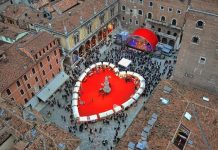Edited by Anna Popper

On International Holocaust Remembrance Day, the Italian Cultural Institute in Budapest honoured the memory of the victims with a powerful theatrical performance, Il Violino di Auschwitz. Featuring Sabrina Modenini and Eleonora Lattarico on violins, the production was presented by Enrico Carretta, adapted and directed by Andrea de Manincor.
Gabriele La Posta, Director of the Italian Institute, welcomed the audience in the Fellini Hall and emphasized the significance of remembrance. Marking the 80th anniversary of Auschwitz’s liberation on 27 January 1945, he underscored Italy’s commitment not only to remember the past, but also to combat denial and anti-Semitism, defend freedom and uphold the fundamental values of Italy and the European Union.






The performance staged on 30 January 2025 brought to life the incredible and heart-breaking true story of Eva Maria Levy, an Italian-Jewish girl with her violin, whose love for music intertwined with her tragic fate during the Holocaust.



A Violin, A Life, A Legacy
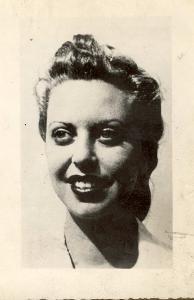
Born in Verona in 1921, Eva Maria Levy was the eldest daughter in her family, sharing a profound passion for the violin with her younger brother Enzo.
In 1938, for her 17th birthday, she received a precious Collin-Mézin violin – with the Star of David inlaid into the wood on the back. It was a symbol of her dreams and devotion to music. Her favourite piece, The Swan by Saint-Saëns, was a melody she often played to bring joy to her parents.
In November 1938, Italy’s racial laws shattered their world. The Levy family, living in Turin, initially clung to the hope that the oppression would pass. But by the end of 1943, the situation became dire. Fleeing to Switzerland, they took only the bare essentials with them. For Eva Maria, that meant her violin. Before they could escape, they were discovered and arrested on 6 December 1943. Eva Maria, her mother, and Enzo were deported from Milan Central Station to Auschwitz on the first transport of Jews out of the city. Her father was not at home at the time and escaped capture.


A Violin in the Shadow of Auschwitz
During the harrowing journey, Eva Maria hid her violin in her coat. It was the only possession she managed to take with her to the concentration camp. Upon arrival, the family was torn apart – Enzo was deported to the Monowitz labour camp, their mother was murdered in the gas chambers, and Eva Maria was assigned to play in the Auschwitz prisoners’ orchestra.
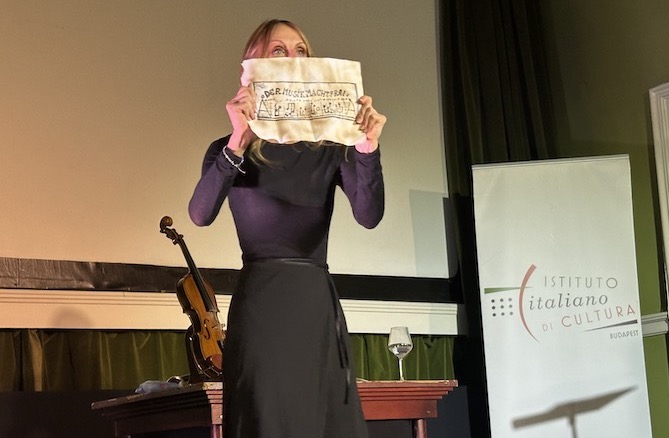
Deprived of her identity, reduced to a mere number, she clung to her music as a fragile source of solace. Her violin became not just an instrument, but her voice, her resistance, her will to survive. It was also the hiding place for a single message from her brother. On a small piece of paper, Enzo had written a melody of six bars, marked with the numbers 168007 – his identification number – along with the haunting words: Der Musik macht frei (Music makes you free). Eva Maria carefully glued the message inside her violin, which was her source of strength, her reason to endure an inconceivable nightmare. But one day the instrument broke – a symbolic and literal shattering of her last hope. Stripped of her music, Eva Maria was sent to the camp brothel, where she was subjected to unimaginable horrors. In June 1944, at just 22 years old, she could endure no more. She took her own life.
The Violin’s Journey Through Time
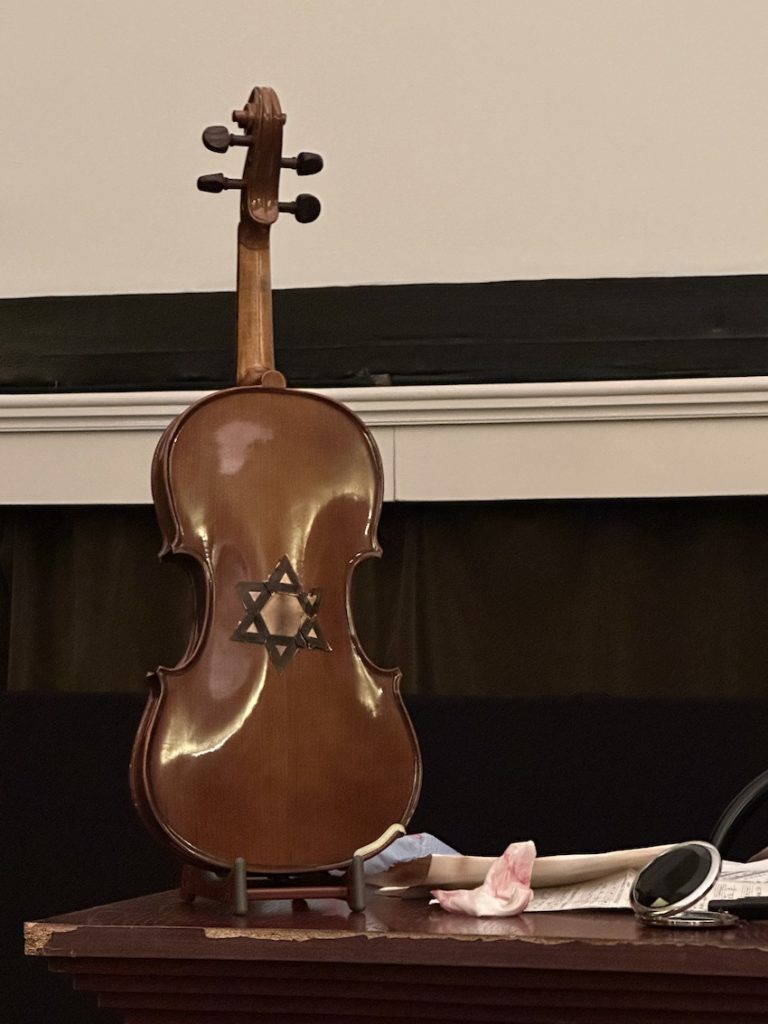
Auschwitz was liberated on 27 January 1945, but Eva Maria’s story seemed lost to history. Miraculously, Enzo survived. After his release from Monowitz, he recovered his sister’s damaged violin from a warehouse and brought it back to Turin. He left it with a restorer but never picked it up.
For decades, the instrument lay forgotten. Then, in 2014, 70 years later it resurfaced in a small antique shop in Turin. The violin caught the attention of Carlo Alberto Carutti, a renowned collector. Intrigued by an inlaid Star of David in mother-of-pearl, he sensed it held a deeper story. Inside the soundbox, he found a small, folded note that revealed the mystery: the identification number belonging to Enzo, Eva Maria’s brother, one of the few survivors of the concentration camp. The hidden message he left for his sister was haunting: “La musica rende liberi” – “Music makes us free.” His words seemed to echo the infamous inscription on the gates of Auschwitz: “Arbeit macht frei” – “Work makes you free.”
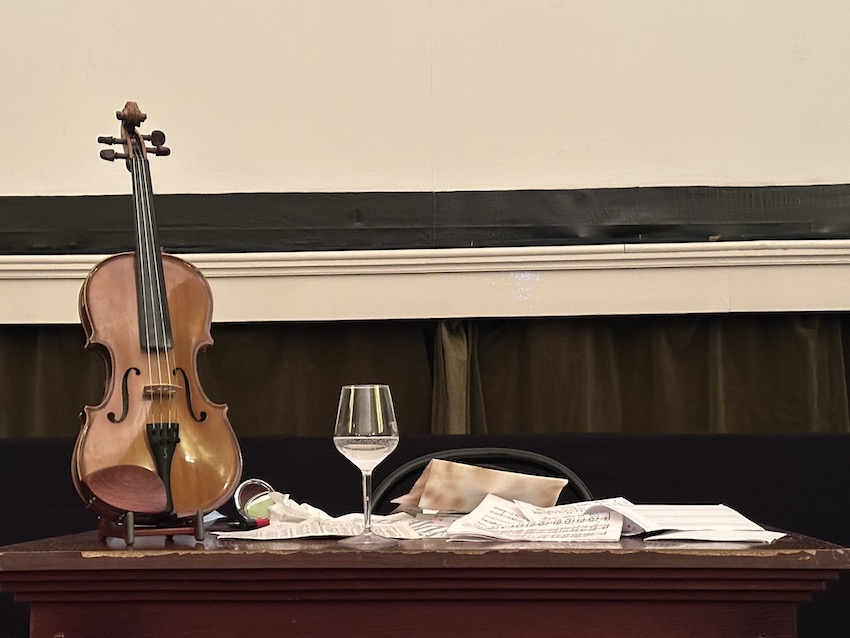
A Legacy That Endures
Today, Eva Maria Levy’s violin is preserved in the Rooms for Music at the Museo Civico Ala Ponzone in Cremona. Periodically, it is brought to life in concerts authorized by the owner – a tribute to the voice it once carried.
The rediscovery of Eva Maria’s violin is more than just the unearthing of an artifact; it is the revival of a lost voice, a testament to resilience, suffering and remembrance. It reminds us that history is not just written in books, but also in the silent witnesses of the past – objects that carry stories waiting to be told. Through her violin, Eva Maria Levy’s legacy lives on, her music resonates beyond time, ensuring that neither she nor those who shared her fate are ever forgotten.
The emotional depth of this exceptional theatrical performance: The Violin of Auschwitz left a profound impact on the audience, eliciting a heartfelt round of applause for the performing artists, directors and technical staff, whose dedication and professionalism brought this powerful story to life.



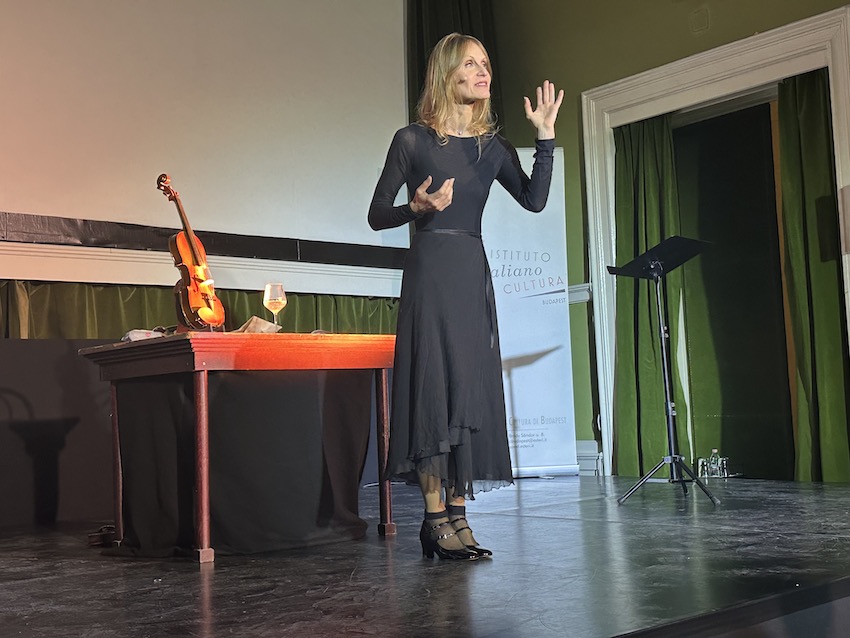
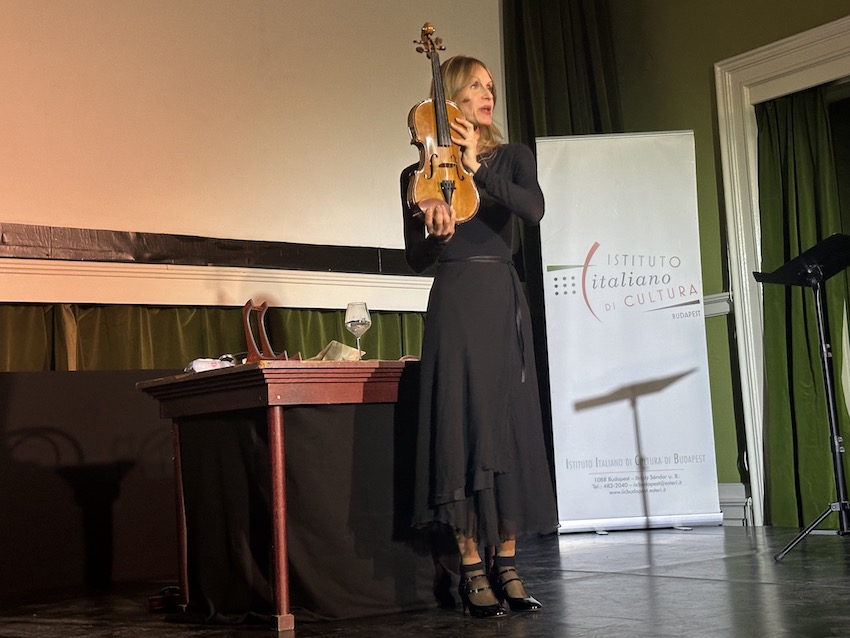
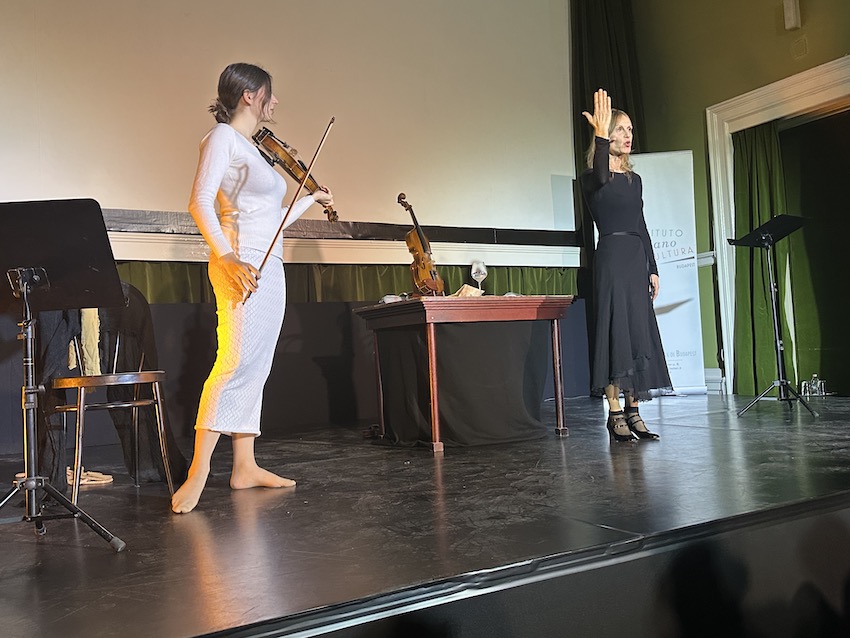
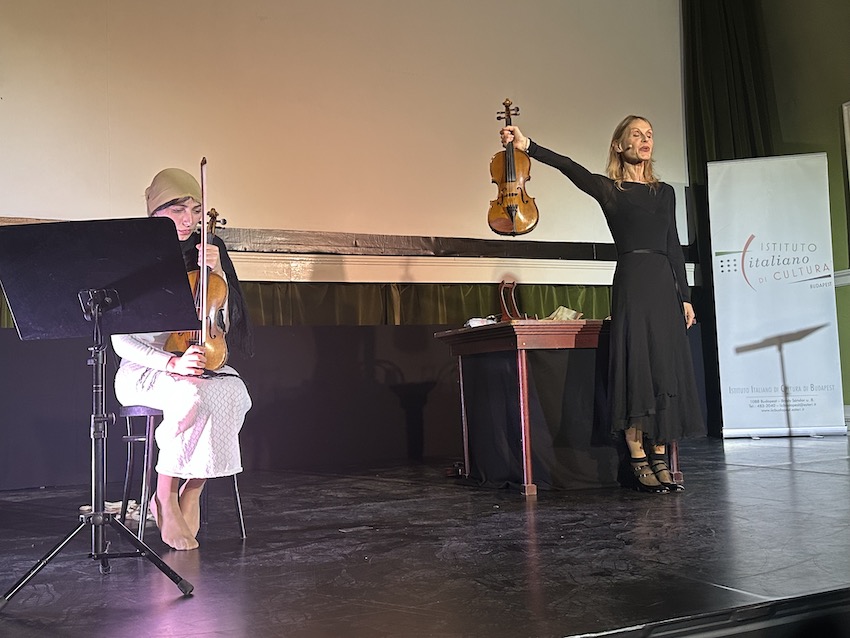
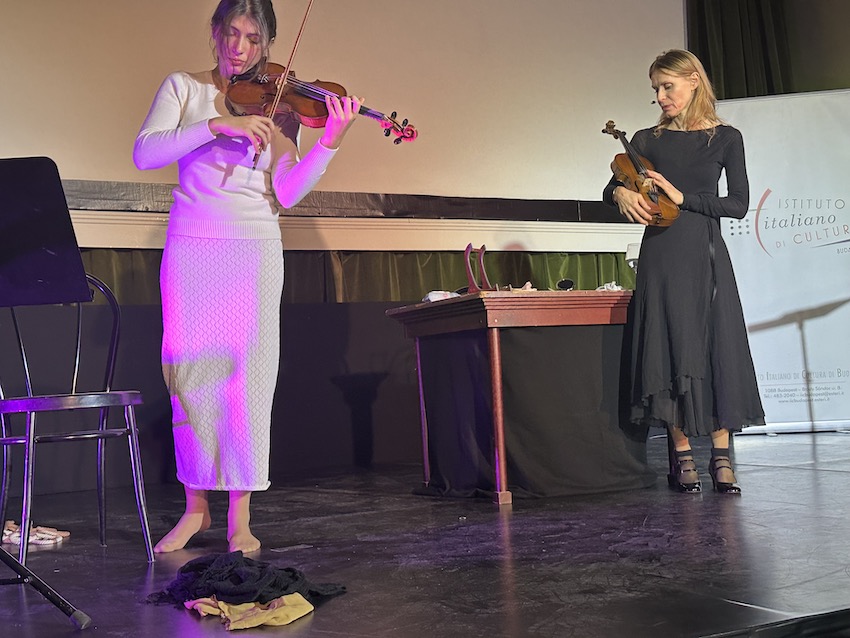
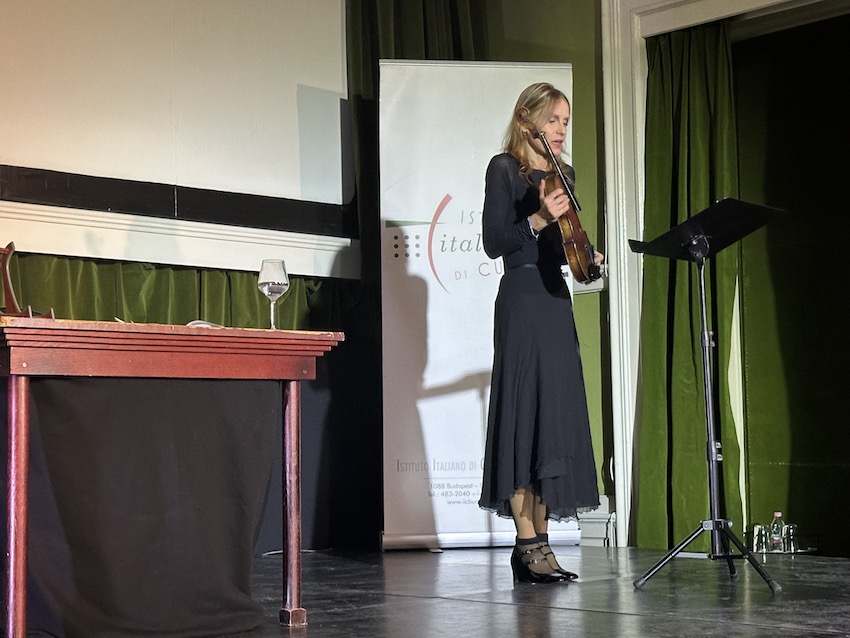
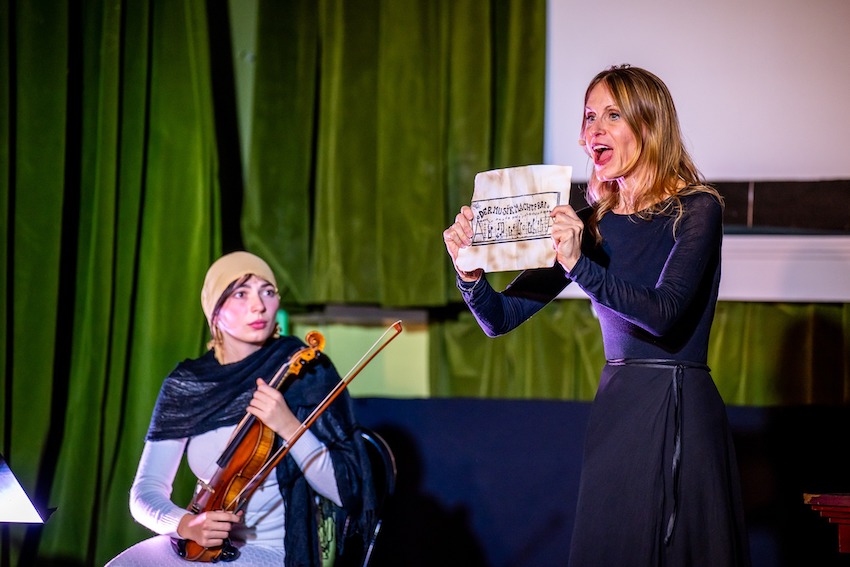
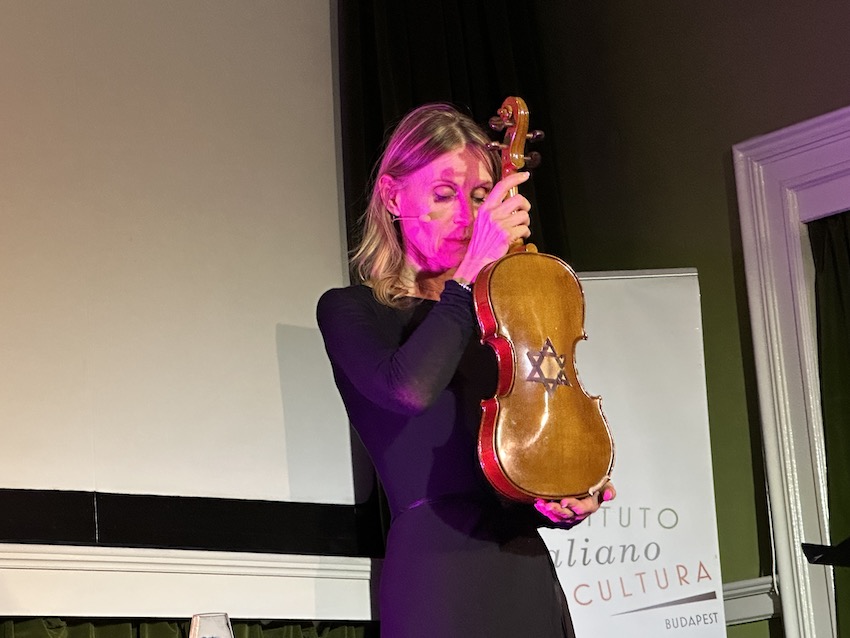
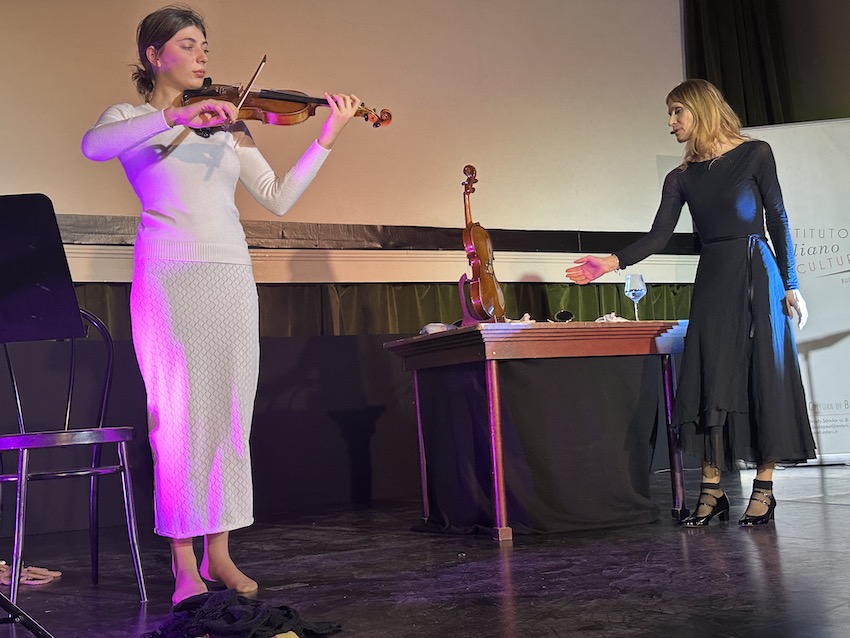
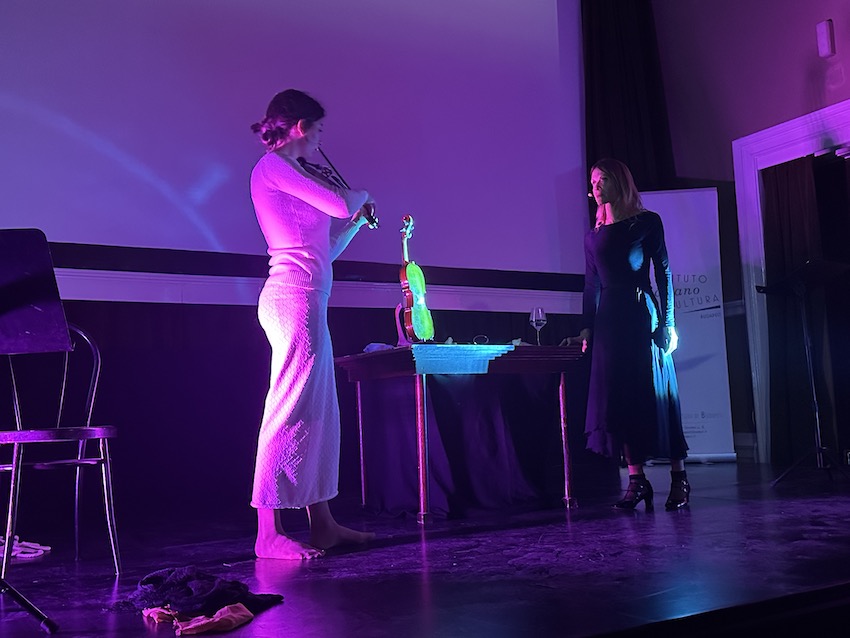
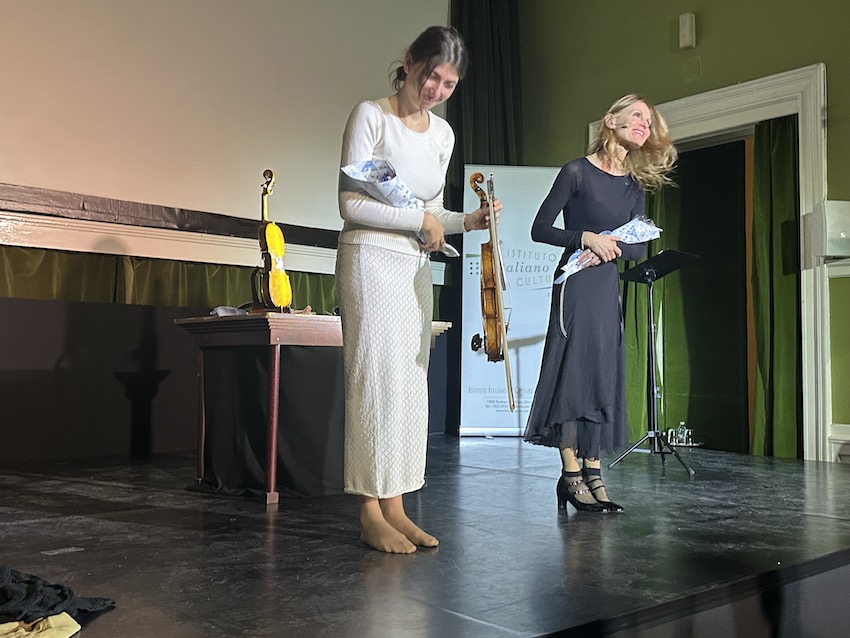
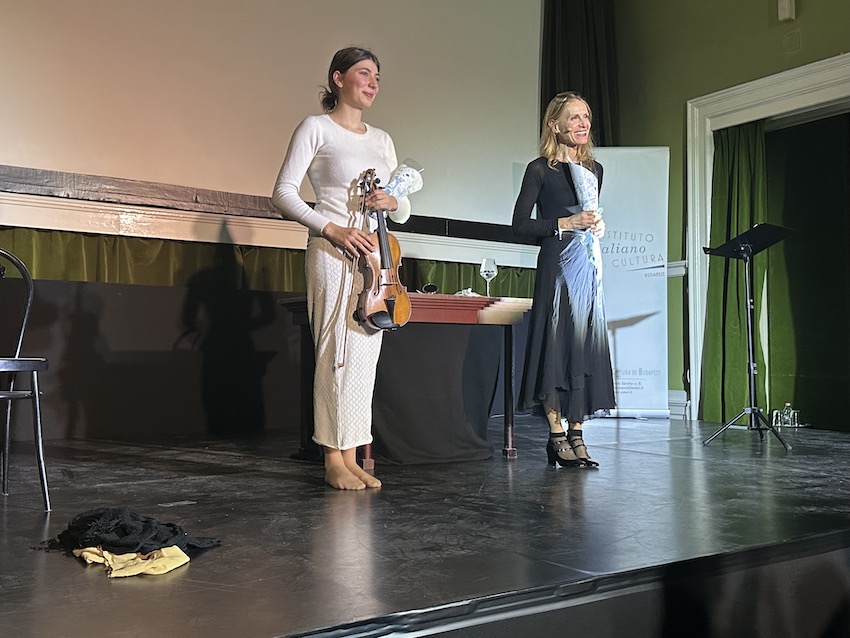
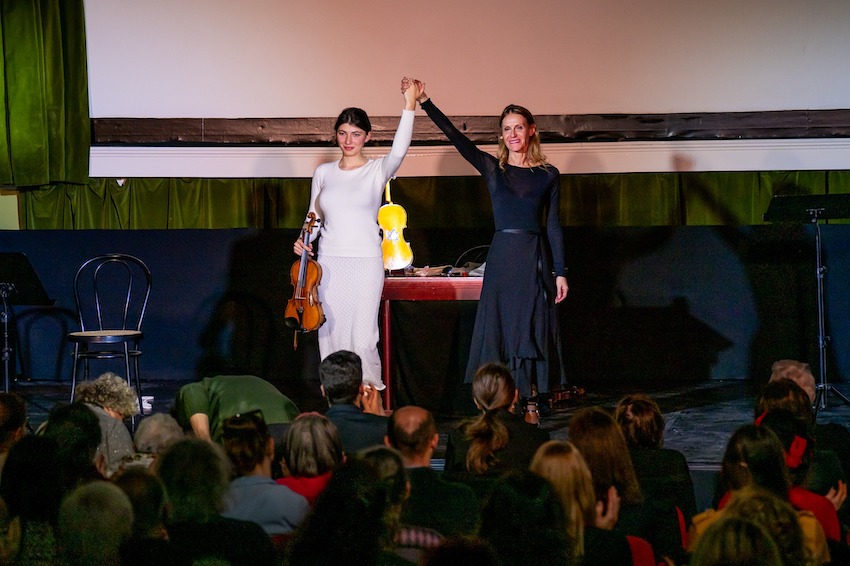
Source: Italian Institute of Culture in Budapest
Photos by the Italian Institute of Culture in Budapest and DPA
Message by the Italian Minister of Foreign Affairs on Holocaust Remembrance Day 2025
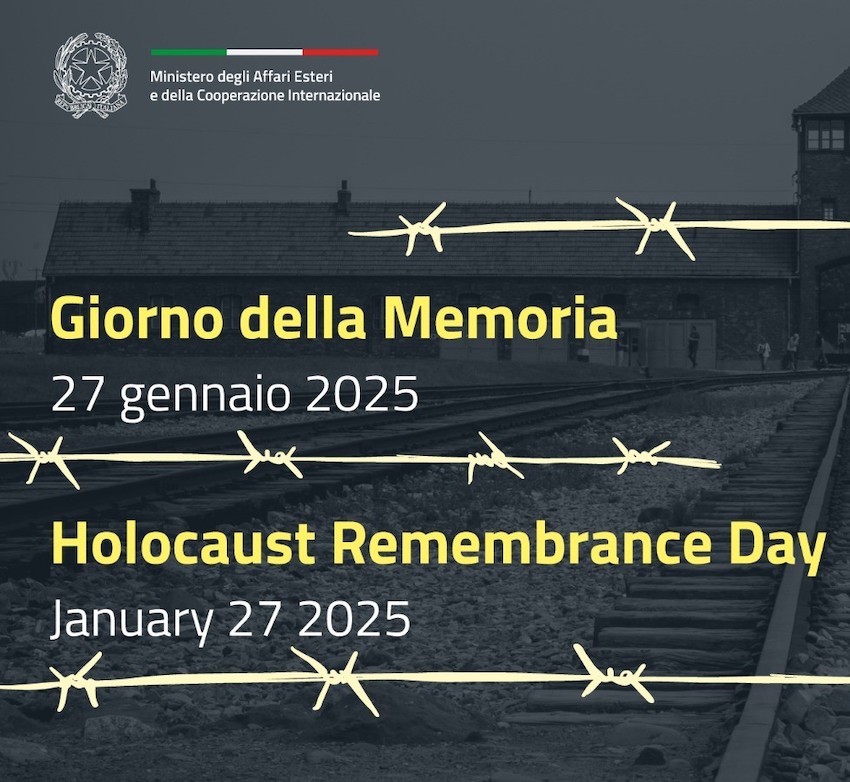
On 27 January 2025, Deputy Prime Minister and Minister of Foreign Affairs and International Cooperation, Antonio Tajani joined in the commemoration of International Holocaust Remembrance Day, emphasizing the importance of keeping alive the awareness of the burden and gravity of past events, especially for future generations, among youth and in schools, to ensure that such crimes never happen again in the history of humanity.
In a video message addressed to the entire Italian diplomatic and consular network, as well as to Italian schools abroad, Minister Tajani stated: “The fight against antisemitism is an absolute priority for me personally, for the government, and for the entire country, which has always been committed to promoting a culture of respect and peaceful coexistence through education, remembrance, and the resolute defence of human rights.”
“We must start from primary schools, teaching every child that there is no justification for hating another person based on their religious beliefs. Remembering is a duty; taking action is a responsibility,” Tajani continued.

The values enshrined in the Italian Constitution and the Universal Declaration of Human Rights affirm the absolute rejection of the totalitarian and racist ideologies that led to the horrors of World War II. In the wake of the tragic events of 7 October 2023, there are alarming signs of a resurgence of antisemitism in Europe and worldwide, manifesting in senseless attacks, harassment, and hate speech targeting individuals of Jewish faith or heritage. In response to these worrying trends, Italy remains resolute in its vigilance and is committed to strengthening efforts to preserve the memory of the Shoah. Minister Tajani has reiterated the country’s dedication to combating antisemitism on several recent occasions, most notably during his visit to Israel on 20 January 2025.
Italy stands at the forefront of the fight against all forms of antisemitism, both nationally and internationally, underscoring its complete incompatibility with our values and principles. The country firmly condemns all forms of Holocaust denial, discrimination and violence against the Jewish community.
Video message from H.E. Antonio Tajani, Deputy Prime Minister and Minister of Foreign Affairs and International Cooperation: https://www.youtube.com/watch?v=_e_qvonKjuA


